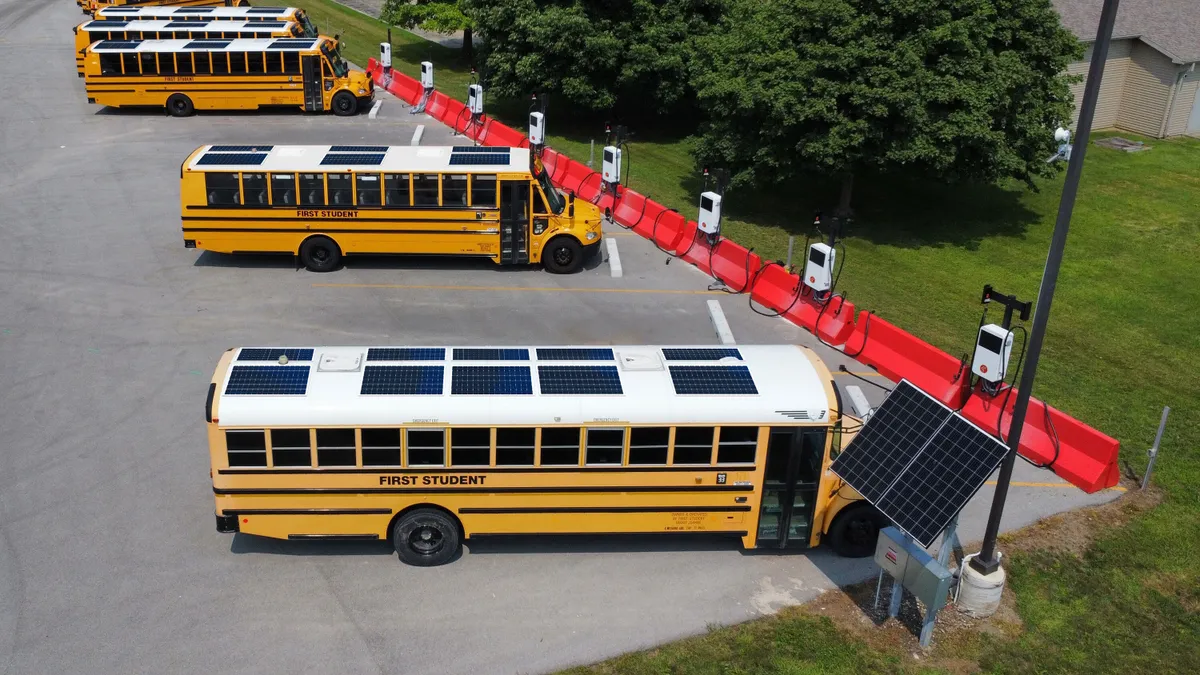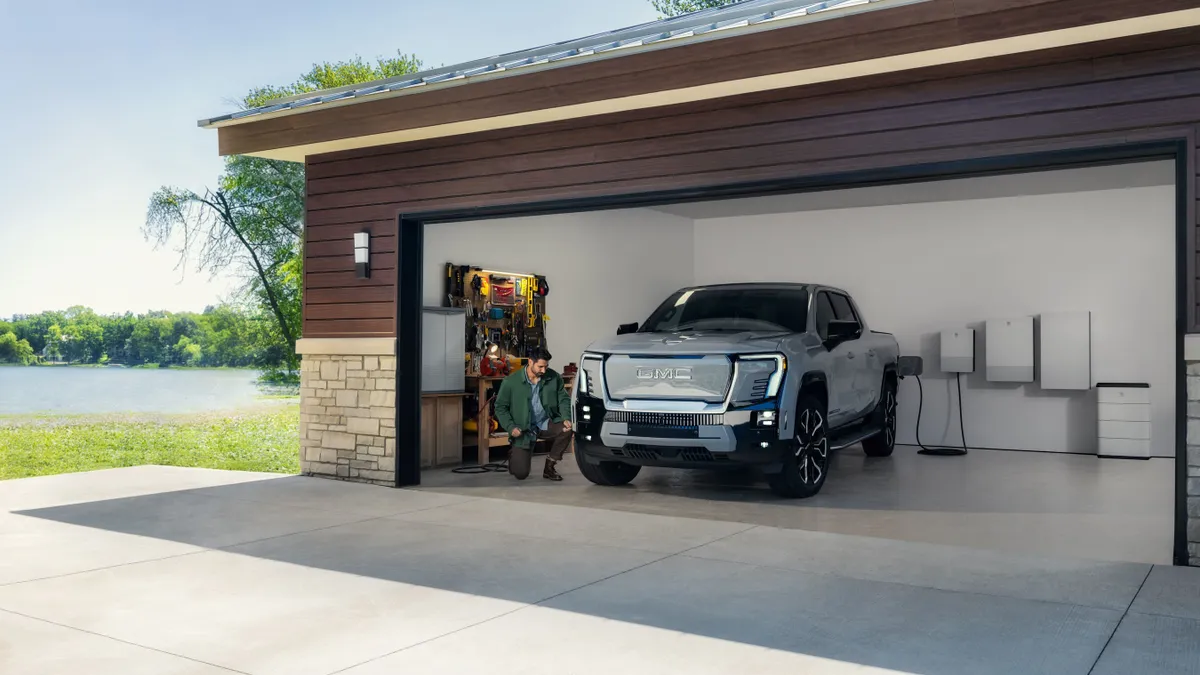LOS ANGELES — Cities and the private sector must "change the rules of the game" and lean into more collaborative, cooperative relationships if new mobility solutions are to be successful, speakers said during the first day of the CoMotion LA conference in Los Angeles.
Cities have made moves to partner more aggressively with the private sector, but speakers acknowledged that such partnerships require a major culture shift in city halls across the country.
Previously, city leaders have been caught flat-footed by the sudden introduction of innovations like ride-hailing and dockless bikes and scooters. Los Angeles Mayor Eric Garcetti attributed that reaction to city leaders not thinking big enough about the future and allowing themselves to be railroaded by uncooperative companies.
"So many leaders at the civic level try to keep the future away, whether it's the death of bookstores and people buying online, or when scooters suddenly hit," Garcetti said in a speech. "The other class of folks are future-passive, they just kind of might be excited or might be bummed out about it, but they let it just happen."
Speakers also highlighted a risk-averse culture that is pervasive in city halls, in part due to the criticism that can follow unsuccessful projects, which typically draw from public money and can thus engender immense mistrust among residents.
"It's hard to learn in public with public dollars," Seleta Reynolds, general manager of the Los Angeles Department of Transportation (LADOT), said during a panel discussion.
"It is very easy to be risk-averse in the public sector," Joshua Schank, chief innovation officer at LA Metro, agreed during that panel. "People are going to jump all over anything you do and try to brand it a failure."
And when cities do look to partner with private companies, the results can sometimes be less-than-ideal. Reynolds recounted what has been a months-long struggle between LADOT and Uber over the company's non-compliance with the agency's requirement that dockless mobility companies report certain trip data via the Mobility Data Specification (MDS), as mandated in their one-year operating permits.
That battle involving Uber-owned Jump bikes and scooters took on a new dimension last month after Uber threatened to file a lawsuit over the data requirements and has since been suspended from operating in the city. The legal brouhaha shows how hard it can be for cities to work with some private entities, even though it has been beneficial for others involved, Reynolds added.
"It's hard to learn in public with public dollars."

Seleta Reynolds
General Manager, Los Angeles Department of Transportation
"It's not my preference," she said of the impasse with Uber. "I would much, much rather be at the table, which we are with a lot of these other companies, learning together and figuring out together how to make this work best for everyone."
It all leads to what Garcetti said is a desire from some cities not to be first to try something innovative like open data sharing, especially in partnership with the private sector. Instead, he said many city leaders would rather see someone else be first, and only follow their lead if it is successful.
"Trust me, I get it," Garcetti said. "There's a lot of mayors and urban leaders who say, 'Try it in another city first. When you work out all the kinks, then bring it to my city.'"
Some early successes
Despite the issues that have surrounded some partnerships between the public and private sectors, speakers also highlighted some wins.
In Portland, OR, the city’s dockless program has helped shape the city’s investments in its street infrastructure by showing where the bikes and scooters are being used most regularly. In underserved areas, the data is also showing city leaders where they can do more to encourage greater ridership.
Chris Warner, director of the Portland Bureau of Transportation (PBOT), said the data partnership has involved working closely with dockless companies — and it's paying dividends.
"Having that kind of information is really important for us because we have to make decisions about scarce resources and where people are riding and where they're riding safe, we can make those decisions," Warner said during a panel discussion. "That's something the companies can really help us with."
Meanwhile, Reynolds acknowledged that while there have been issues between LADOT and Uber over data-sharing, it is only because transparency is key in these situations, especially when the data is being used to help shape the city's dockless program.
"As regulators, the more information we have, the more calm we feel," she said.
As for encouraging new mobility methods in cities, Reynolds and Schank said there needs to be a greater focus on how private companies' business models can change. That could be as simple as seeing a return on investment in terms of utilization instead of financial returns. But Schank said such efforts will need close collaboration and maybe even public subsidies as that business model is not conducive to making a profit.
"There are lots of different ways of doing this, and no one has the answer."

Joshua Schank
Chief Innovation Officer, LA Metro
"There are lots of different ways of doing this, and no one has the answer," he said. Schank also pointed to Los Angeles' system of allowing companies to submit unsolicited ideas for municipal improvements, a scheme that has, for example, yielded a proposal to build a gondola in the city.
If these collaborations are successful, cities could go a long way toward solving their biggest issues, including traffic congestion and rising temperatures caused by climate change. But it will require "mutually beneficial cooperation," Roald Lapperre, the Netherlands' vice minister for the Environment and International Affairs, said.
"By keeping an open mind and working together, we can find green and smart solutions to create urban mobility systems that are strong and sustainable," he said.




















